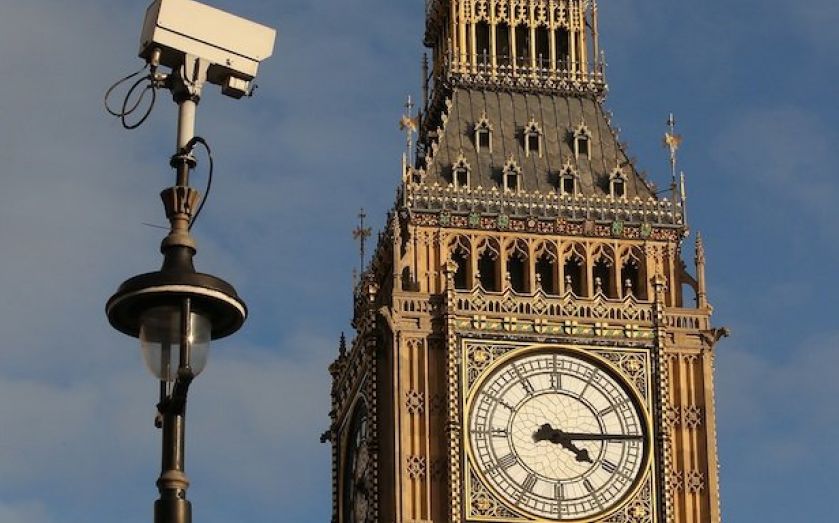Debate over Big Brother snooping is being stifled as our freedom suffers

RECENT revelations that the US government spied on 35 world leaders inspired Gallic outrage, German sulking, and stony British silence. Yet as the latest transatlantic row erupts, we should care less about Uncle Sam spying on foreign governments – and more about Big Brother snooping on British citizens.
UK surveillance over its own people increased exponentially under the last government. Yet oversight and accountability has frayed, and legitimate debate is being drowned out by untested assertions of national security.
In June, for instance, The Guardian published allegations by US National Security Agency (NSA) whistleblower Edward Snowden that British spy agency, GCHQ, clandestinely taps transatlantic fibre optic cables, giving almost unfettered access to people’s phone call recordings, emails, Facebook entries and internet use. The legal basis for this Operation Tempora looks thin, and Parliament had no idea. We also learnt Britain receives data from the US Prism program of mass surveillance by the NSA – which seems to allow UK spooks to dilute safeguards that apply if UK agencies gathered the information.
MI5 chief Andrew Parker later lambasted The Guardian for handing terrorists a gift, while ministers claimed the disclosures put lives at risk. Is The Guardian a “useful idiot” for the terrorist cause? Parker claimed that making public “the reach and limits of GCHQ techniques” breaches national security. Not disclosing interception techniques. Not revelations of sources or operatives. Merely revealing our intelligence “reach”. Yet any serious terrorist group assumes its phones, emails, and internet use will be monitored. That’s no secret. And learning that Western spies drain the swamp of their own citizens’ data in the process doesn’t aid terrorists in any tangible way.
If national security was materially breached, why hasn’t anyone at The Guardian been arrested since the search of their offices in July? Why wasn’t David Miranda (the partner of one of their former journalists) arrested and bailed following his detention at Heathrow in August? Either UK law enforcement is slow – or national security is a fig-leaf to muzzle disclosures that are just embarrassing. The disclosures also revealed that 850,000 private contractors can access data from Tempora. Now that is a real security concern – but one of the government’s own making.
These issues need to be debated by Parliament, not stifled by the trump card of national security. So today, with Lib Dem and Labour MPs, I am co-sponsoring a debate in Parliament to get some answers, and to exercise some long overdue scrutiny. Given proposals for even broader powers – under the so-called Snooper’s Charter – such oversight is vital.
The implications go beyond privacy. Under our new extradition regime with the US, which became law this month without proper debate, UK citizens will be automatically extradited for actions on British soil amounting to US crimes, where the FBI cites secret evidence – such as intercepted communications – they refuse to share with a British court. If those rules had been in place for Pentagon hacker Gary McKinnon or web-designer Richard O’Dwyer, who beat arbitrary extradition demands by the US, their feet wouldn’t have touched the ground. Whatever your view on these issues, they should be considered by accountable lawmakers.
In the US, reaction to revelations about NSA surveillance has been markedly different. Dianne Feinstein, the (Democrat) chair of the Senate Intelligence Committee, called for a wholesale review, stating: “Congress needs to know exactly what our intelligence community is doing”. This week, a cross-party Bill was proposed in Congress to block mass trawling of data on US citizens, increase judicial oversight over snooping powers, and require greater transparency by the Federal government and private companies involved. It even attracted the full-throated support of Jim Sensenbrenner, the Republican architect of the US Patriot Act, which massively increased US surveillance powers after 9/11.
Here in Britain, the reaction has been more muted, with newspapers and politicians lining up to bash The Guardian for giving succour to terrorists with its disclosures. In reality, unless surveillance over UK citizens has a firm legal basis and proper oversight, it will be vulnerable to abuse, legal challenge and ebbing public support. Of course, surveillance powers are vital to national security. But they need to be exercised in a way that respects the freedoms of innocent citizens, limits incursions to genuine cases of national security, and does so under a regime that commands the rule of law. Failing to ensure that would be the real “gift” to the terrorists: a victory for everything they believe in, a blow against everything we stand for.
Dominic Raab is the Conservative MP for Esher.